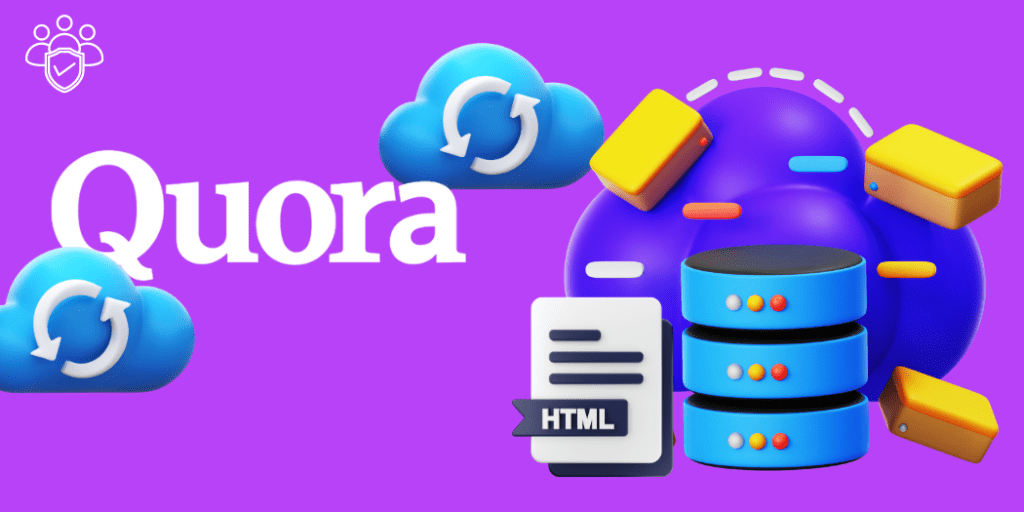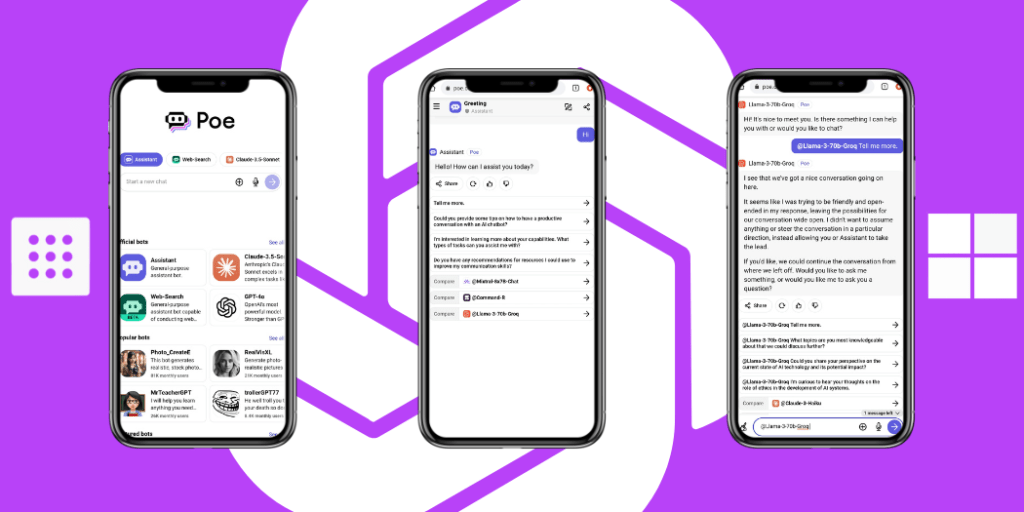Rapidly evolving landscape of digital content consumption, Quora’s AI-powered chatbot platform, Poe, has sparked controversy by enabling users to access paywalled articles from prestigious journalistic outlets like The New York Times and The Atlantic.
Backed by a substantial investment and positioned as a tool for interactive AI interactions, Poe raises significant questions about intellectual property rights, journalistic ethics, and the future of content distribution in the digital age.
Functionality Quora’s Poe
Quora’s Poe platform is an AI-driven chatbot designed to facilitate interactions between users and various AI models. One notable feature allows users to input URLs of paywalled articles from publications like The New York Times and The Atlantic.
Instead of summarizing these articles, Poe generates downloadable HTML files replicating the entire content. This functionality has drawn attention due to its potential implications for copyright law and journalistic integrity.
Poe’s Assistant bot, purportedly powered by Anthropic’s Claude model, accesses and retrieves content from specified URLs, converting them into downloadable files that users can store or share.
Quora defends this practice by likening it to cloud storage services, arguing that users initiate the process and Poe acts as a facilitator rather than a direct infringer of copyrights.

Critics, including legal experts and affected publishers, contend that Poe’s actions constitute prima facie copyright infringement, as it copies and distributes protected content without authorization from copyright holders.
The platform’s disregard for the Robots Exclusion Protocol, a standard guideline for web crawlers, further complicates its operational framework.
Poe’s servers, identified as “Quora Bot,” reportedly access websites directly after user prompts, raising concerns about the platform’s adherence to ethical web scraping practices and its impact on digital content ecosystems.
Overall, Poe represents a pivotal case study in the intersection of AI technology, intellectual property rights, and media ethics, prompting broader discussions about the responsibilities of AI platforms in content aggregation and distribution.
Legal and Ethical Concerns
The emergence of Quora’s Poe platform has ignited significant legal and ethical debates in intellectual property law and journalistic ethics.
At the heart of these concerns is Poe’s capability to provide users with downloadable HTML files of paywalled articles from prominent publishers, including The New York Times and The Atlantic.
Legal experts, such as James Grimmelmann from Cornell University, argue that Poe’s practice of copying entire articles onto its servers without explicit permission from copyright holders constitutes prima facie copyright infringement.
This viewpoint underscores the tension between technological innovation and established copyright protections, particularly in an era where digital content is increasingly vulnerable to unauthorized reproduction and distribution.
Quora counters these allegations by likening Poe’s functionality to cloud storage services, where users initiate the copying process, and the platform facilitates storage and access.
This defence hinges on the interpretation of Poe as a tool rather than a direct actor in copyright violation, a stance that has sparked scepticism among legal circles and affected publishers.
Ethically, Poe’s actions raise concerns about the sustainability of journalistic business models reliant on subscription revenues.
By enabling users to bypass paywalls and access premium content for free, Poe challenges the integrity of journalistic content distribution and undermines the financial viability of traditional media outlets.
Poe’s disregard for the Robots Exclusion Protocol, observed through its direct server accesses to specified URLs, further complicates its ethical standing.
This practice disregards established web crawling norms and raises questions about the platform’s respect for digital privacy and content ownership.
As AI technologies continue to evolve, the resolution of these issues will likely shape future policies regarding intellectual property rights and the responsibilities of AI platforms in the digital ecosystem.
Publisher Reactions
Publishers, including prominent names like The New York Times and Forbes, have responded vigorously to Poe’s controversial functionality, viewing it as a direct threat to their intellectual property rights and business models.
Publishers have expressed outrage and concern upon learning that Poe allows users to download complete articles from paywalled sites like The New York Times and The Atlantic.
Legal actions have been contemplated and, in some cases, initiated against platforms like Poe and similar AI-driven services. For instance, The New York Times has explicitly stated that scraping or reproducing its content without prior written permission violates its terms of service and legal protections.

The controversy underscores broader industry efforts to protect copyrighted material from unauthorized use and exploitation.
Publishers argue that platforms like Poe facilitate copyright infringement by reproducing entire articles without compensating the creators or obtaining necessary permissions.
In response to these legal and ethical challenges, publishers have explored various avenues, including legal recourse and technological measures to protect their content.
These efforts reflect a broader industry trend towards safeguarding digital assets and preserving the integrity of subscription-based content models.
Technical Details
Poe’s operational framework includes technical aspects that have raised significant concerns regarding its adherence to established web crawling practices and standards.
Poe’s Assistant bot, powered by AI firm Anthropic’s Claude model, operates by allowing users to input URLs of articles from paywalled websites.
Upon receiving these inputs, Poe accesses the specified URLs and generates downloadable HTML files containing the entire content of the articles.
This process effectively bypasses paywalls and allows users to access premium content without subscribing or paying for individual articles.
One of the critical technical controversies surrounding Poe is its apparent disregard for the Robots Exclusion Protocol . This standard guideline governs how web crawlers should interact with websites.
Reports indicate that Poe’s servers, identified as “Quora Bot,” directly visit the URLs without adhering to robots.txt instructions.
This behaviour raises concerns about Poe’s respect for digital privacy, content ownership, and established norms of web crawling etiquette.
Poe’s actions have sparked debates about the ethical implications of AI-driven content aggregation.
Critics argue that Poe’s ability to replicate and distribute copyrighted content without authorization undermines the financial sustainability of journalistic outlets and challenges existing legal frameworks designed to protect intellectual property rights.
In conclusion, the technical details of Poe’s crawling practices highlight ongoing concerns about its compliance with industry standards and broader impact on digital content ecosystems.
As stakeholders navigate these challenges, resolving legal and ethical issues surrounding AI-driven content aggregation will likely shape future policies and practices in the digital media landscape.
Industry Perspectives
The emergence of Poe and similar AI-driven platforms has prompted varied responses and reflections within the media and technology industries, shaping discussions on future directions and regulatory considerations.
Media executives and industry observers have voiced concerns over the potential disruption Poe poses to traditional business models reliant on subscription-based revenue streams.
The platform’s ability to circumvent paywalls and provide free access to premium content challenges the sustainability of journalism. It raises fundamental questions about the economic viability of digital content creation.
At the same time, Poe’s operational practices have underscored broader debates about the responsibilities of AI platforms in content aggregation and distribution.
Stakeholders argue that while technological innovations like Poe offer unprecedented convenience and accessibility to users, they must operate within legal frameworks that protect intellectual property rights and uphold ethical standards.

The future direction of AI-driven content aggregation hinges on regulatory responses and industry collaboration.
Media companies are exploring technological solutions and legal strategies to safeguard their content from unauthorized use and mitigate the impact of platforms like Poe on their revenue models.
From a regulatory standpoint, policymakers face balancing innovation with protecting intellectual property rights.
The ongoing legal disputes and industry discussions surrounding Poe exemplify the complex interplay between technological advancement, legal frameworks, and ethical considerations in the digital age.
The industry perspectives on Poe reflect a critical juncture in the evolution of digital content distribution.
As stakeholders navigate these challenges, the outcomes will likely shape the trajectory of AI technologies in media and influence future policies to foster innovation while preserving the integrity of intellectual property rights.
Poe’s controversial functionality highlights profound challenges at the intersection of AI technology, intellectual property rights, and media ethics.
By enabling users to bypass paywalls and access copyrighted content from prestigious publishers, Poe has sparked legal disputes and ethical debates about the future of digital content distribution.
As stakeholders navigate these complexities, the outcomes will shape regulatory landscapes and industry practices, influencing how AI platforms engage with content aggregation while respecting established legal and ethical standards.


